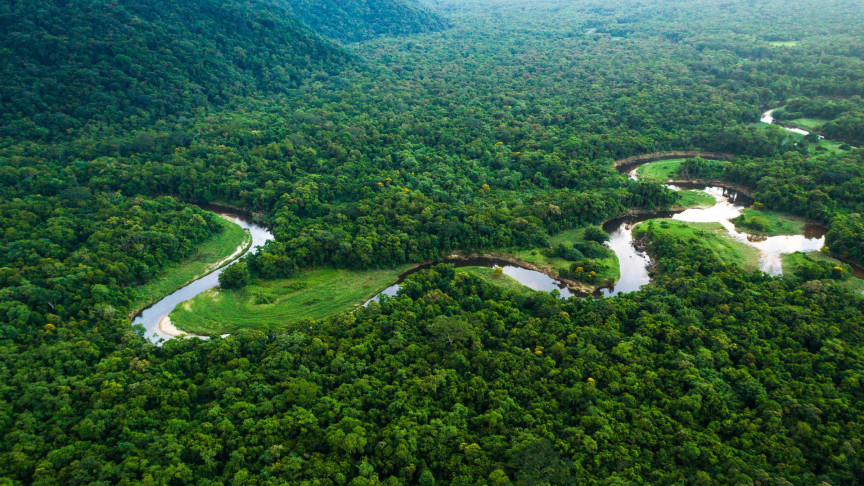
interestingengineering.com
Dinosaur-Killing Impact May Have Given Birth to Earth's Tropical Rainforests
Before the asteroid impact, cone-bearing plants called conifers and ferns dominated.
Science & Tech
The tropical rainforests are rich, lush forests filled with life and biodiversity. Now, a new study is revealing that these beautiful forests may have come from the impact that killed the dinosaurs, according to BBC.
Using fossil pollen and leaves from Colombia, researchers examined how the impact of the 7.5 mi-wide asteroid (12 km) that hit Earth 66 million years ago affected South American tropical forests. What they found was that the type of vegetation that dominated these forests changed significantly.
"Our team examined over 50,000 fossil pollen records and more than 6,000 leaf fossils from before and after the impact." Co-author Dr. Mónica Carvalho, from the Smithsonian Tropical Research Institution in Panama, told the BBC.
Before the asteroid impact, cone-bearing plants called conifers and ferns were common in what is now the Yucatan Peninsula in Mexico as opposed to the angiosperms, or flowering plants, that now dominate the region. In addition, trees were more widely sparsed before the impact, allowing sunlight to reach the forest floor, something that does not occur in today's dense forests.
The researchers came up with three reasons to explain these differences. The first is that dinosaurs may have thwarted the forests' development by feeding and trampling on plants growing in the lower levels.
The second is that the ash that resulted from the impact could have enriched soils throughout the tropics, and the third explanation is that the extinction of the conifer species gave rise to an opportunity for flowering plants to dominate.
These circumstances may have worked separately or all together at the same time to create our beautiful forests of today.
"The lesson learned here is that under rapid disturbances... tropical ecosystems do not just bounce back; they are replaced, and the process takes a really long time," Carvalho concluded. The study is published in the journal Science.
























































